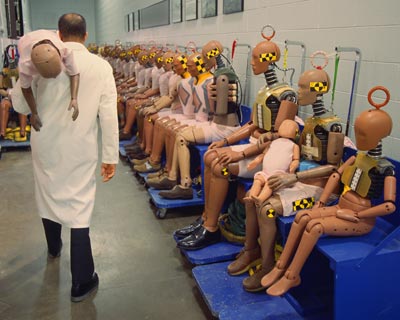From Jason Dorrier at Singularity Hub, a hopeful take on the seemingly scary side of the rise of the machines:
“Before the 20th century, most folks in the West farmed. Now, thanks to massive productivity gains in agriculture, virtually none do. To a 19th century farmer that would imply nothing less than the collapse of the economy. Why? Because the thing most people did back then was farm. Our farmer might understandably wonder, ‘What will we do when machines perform our jobs for us? How will we make money? How will we survive?’
We are gifted with the vision of our times and cursed with the temptation to extrapolate that vision into the future. How could our farmer know that in 2013 humans would be paid to make movies, pick up garbage, write online, build robots, clean bathrooms, engineer rockets, lead guided tours, drive trucks, play in garage bands, brew artisanal beer, or write code?
The revolution in agricultural technology liberated vast resources and made us all richer and the economy more diverse as a result. And while one might think that those riches should have accrued to only those making agricultural tech, thus permanently widening the income gap, no such thing happened in practice. While those making agricultural machinery undoubtedly made some bucks, the next economic waves provided different work and income for many levels of skill and motivation.
This is understandably a firebrand topic right now. If current unemployment marked the beginning of mass technological unemployment, you can be sure mass social unrest would be quick to follow. But we can’t prove it’s structural yet. Unemployment is a typically lagging indicator.”
Tags: Jason Dorrier

